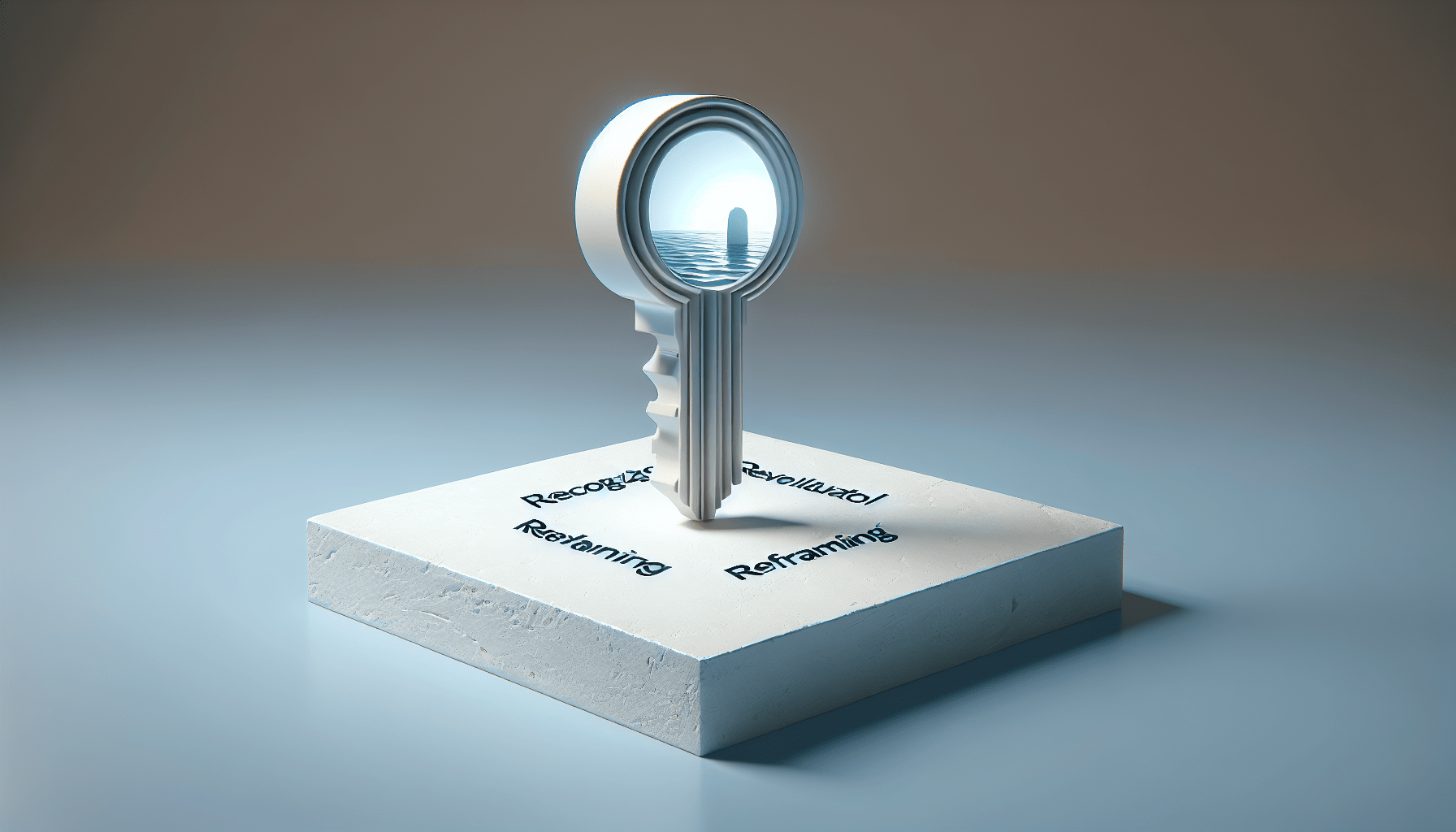Depression can be overwhelming, affecting every aspect of your life. But fear not, because there are four essential strategies that can help you navigate through the darkness. These strategies, known as the 4 R’s of depression, are a valuable tool in your journey towards healing and recovery. By recognizing, reevaluating, reframing, and redirecting, you can regain control over your mental and emotional well-being. So, let’s explore each R and discover how it can empower you to overcome depression and embrace a brighter future.
Recognize
Identifying the signs and symptoms of depression
Recognizing depression is the first step towards seeking help and finding support. It’s crucial to be aware of the signs and symptoms so that you can take appropriate action. Common signs of depression may include persistent feelings of sadness, lack of interest or pleasure in activities, changes in appetite or weight, sleep disruptions, feeling fatigued or low energy, difficulty concentrating, feelings of worthlessness or guilt, and recurrent thoughts of death or suicide. If you experience these symptoms for more than two weeks, it’s important to reach out for professional help.
Understanding the impact of depression on daily life
Depression can have a significant impact on various aspects of your life. It affects your mood, thoughts, and behaviors, which in turn influence your relationships, work or school performance, and overall well-being. Depression can make even simple tasks feel overwhelming, and it may lead to social isolation, decreased productivity, and difficulties in maintaining healthy habits. Being aware of how depression can affect your daily life is essential in order to effectively manage and cope with this condition.
Realize
Accepting the presence of depression
Accepting that you are experiencing depression can be challenging, as it may be accompanied by feelings of shame, guilt, or self-blame. However, it is important to realize that depression is a common and treatable mental health condition. Acceptance does not mean giving in to depression, but rather acknowledging its presence and the impact it has on your life. Accepting depression empowers you to take control and seek the necessary help and support.
Acknowledging the need for help and support
No one should face depression alone. Acknowledging the need for help and support is a vital aspect of overcoming depression. It is essential to reach out to trusted friends, family members, or healthcare professionals who can provide guidance and assistance. Remember that seeking help is not a sign of weakness, but rather a sign of strength and courage. Having a support system can make a significant difference in your journey towards recovery.
Reevaluate
Examining negative thought patterns and beliefs
Depression often brings negative thoughts and beliefs that impact how you perceive yourself, others, and the world around you. Engaging in self-reflection and examining these negative thought patterns is an essential part of challenging and changing them. Take some time to identify the negative thoughts that emerge in your mind and evaluate their accuracy and validity. Remember that depression often distorts reality, and these negative thoughts may not accurately reflect your true self or the situation.
Challenging and reframing negative thoughts
Once you have identified negative thought patterns, it’s important to challenge them and replace them with more positive and realistic thoughts. Start by questioning the evidence for your negative thoughts and considering alternative perspectives. Ask yourself if there is any evidence to support these negative beliefs, and if not, try to find evidence that contradicts them. Reframe your thoughts by replacing negative and self-defeating statements with more compassionate and empowering ones. This process takes time and practice, but it can lead to a more positive mindset and improved well-being.
Rebuild
Developing coping mechanisms and strategies
Developing coping mechanisms and strategies is crucial for managing depression and building resilience. Different techniques work for different people, so it’s important to explore and find what works best for you. Some effective coping strategies include engaging in regular exercise, practicing relaxation techniques such as meditation or deep breathing exercises, maintaining a balanced and healthy lifestyle, establishing a support network, pursuing activities that bring joy and fulfillment, and seeking professional therapy or counseling. Remember to be patient with yourself as you navigate through this process of rebuilding.
Working towards recovery and resilience
Recovery from depression is achievable, and resilience can be developed even in the face of challenges. It’s essential to set realistic goals and take small steps towards them every day. Celebrate your progress, no matter how small, and remember that setbacks are a natural part of the journey. Surround yourself with positive influences, engage in self-care activities, and never lose hope. With time, support, and determination, you can regain control over your life and build resilience to face future challenges.
In conclusion, recognizing, realizing, reevaluating, and rebuilding are the four crucial steps towards overcoming depression. By identifying the signs and symptoms, understanding the impact, accepting its presence, and acknowledging the need for help and support, you take the first steps towards recovery. Through examining negative thought patterns, challenging and reframing them, developing coping mechanisms and strategies, and working towards recovery and resilience, you empower yourself to manage depression and live a fulfilling life. Remember, you are not alone, and there is always hope for a brighter future.
